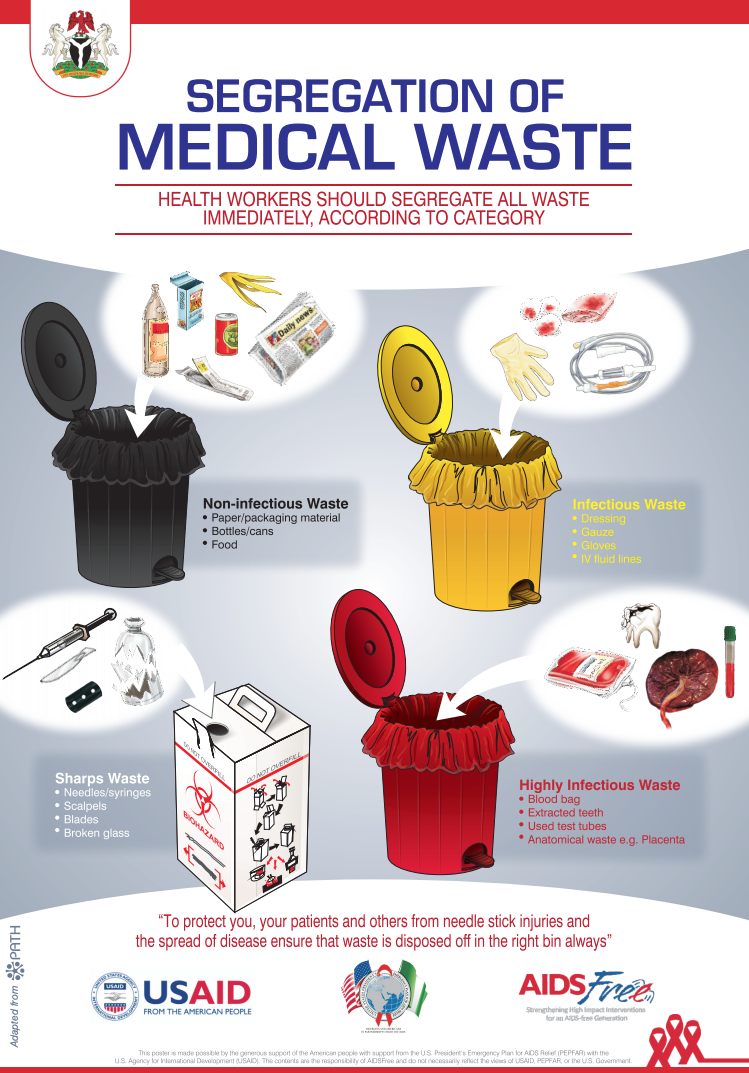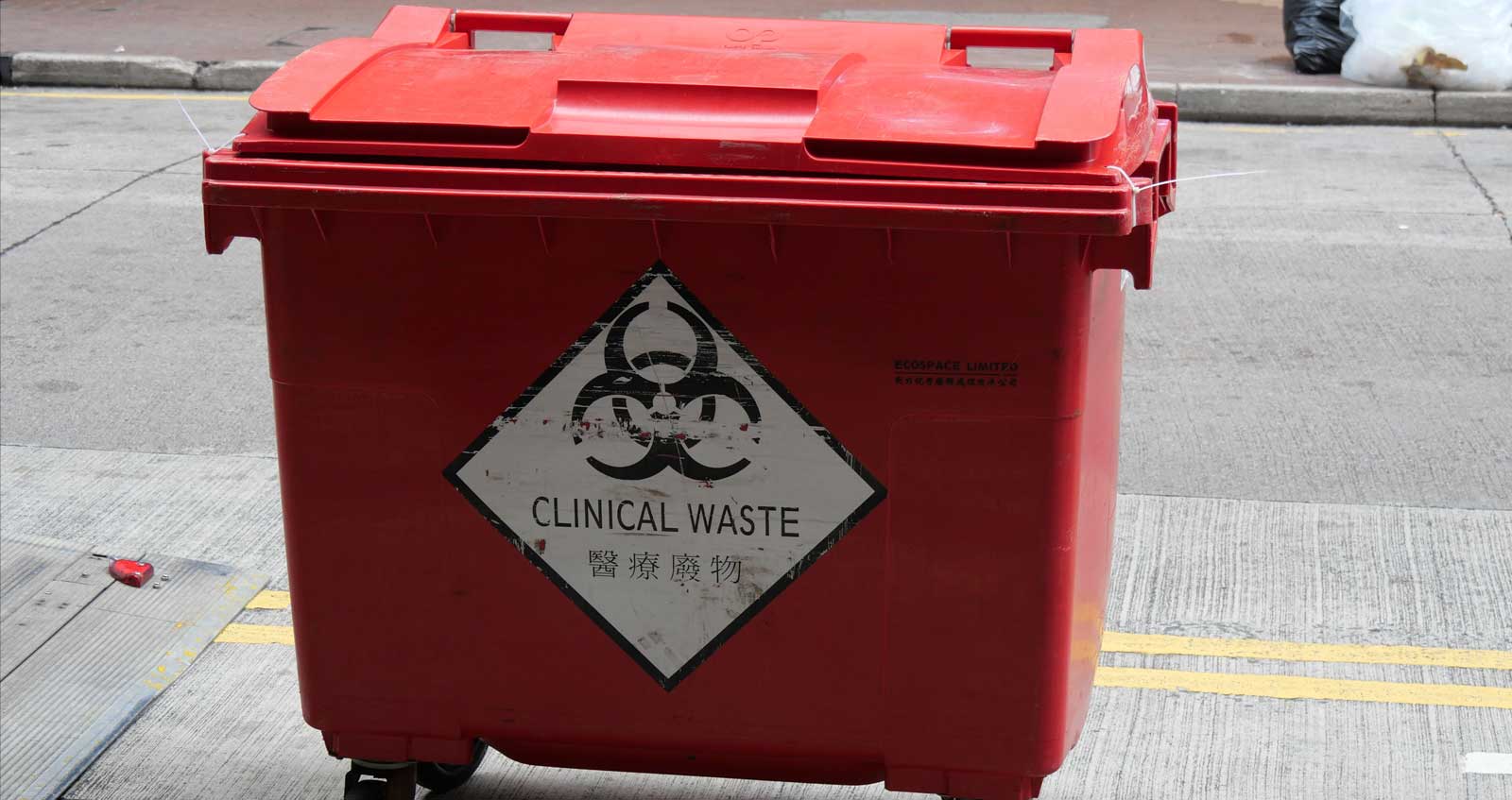Accountable Solutions: Understanding Medical Garbage Disposal Solutions
In the world of healthcare, the correct disposal of medical waste is an important aspect that demands cautious consideration. As medical care centers produce different types of waste that need specialized handling, understanding the subtleties of clinical waste disposal services is critical.
Relevance of Correct Medical Garbage Disposal
Correct clinical garbage disposal is critical in preserving a safe and hygienic setting within healthcare centers. In health care setups, numerous kinds of waste are created daily, including contagious materials, sharps, expired medications, and chemical materials. Otherwise appropriately taken care of, these wastes can present significant risks to both healthcare employees and the public. Incorrect disposal can lead to the spread of infections, injuries from sharps, contamination of water resources, and damage to the environment.

Types of Medical Waste
Within healthcare centers, a diverse array of waste products identified as medical waste is produced, each needing specific handling and disposal techniques. Pathological waste, which consists of cells, body organs, and body parts, demands appropriate disposal to respect the dignity of the deceased and stop any biohazards. Understanding the different types of medical waste is crucial for medical care centers to implement reliable waste monitoring techniques and protect public wellness and the atmosphere.
Rules and Conformity
Healthcare facilities must comply with stringent laws regarding the handling and disposal of clinical waste to make sure compliance with lawful demands and protect public health. These guidelines are implemented to avoid the spread of infections, secure the environment, and maintain the security of healthcare employees and the public. Various governing bodies, such as the Environmental Defense Agency (EPA), the Occupational Security and Health And Wellness Management (OSHA), and the Department of Transport (DOT), have details guidelines that healthcare centers must comply with.
To abide by these regulations, healthcare facilities must correctly set apart, store, transportation, and throw away different types of clinical waste. This includes sharps waste, infectious waste, dangerous waste, and pharmaceutical waste, each calling for particular taking care of procedures. Facilities should also keep exact records of waste generation and disposal to demonstrate compliance during inspections.
Non-compliance with clinical waste guidelines can lead to extreme penalties, fines, and damages to the facility's track record. As a result, it is crucial for medical care facilities to stay informed concerning the most up to date policies and implement durable compliance measures to protect public health and the atmosphere.
Advantages of Professional Disposal Solutions
Engaging specialist clinical waste disposal solutions provides healthcare centers a reliable and effective remedy for taking care of harmful products. These services utilize trained specialists that are well-versed in handling different types of medical waste, making sure appropriate segregation, disposal, packaging, and transport. Medical Waste Disposal Services.
Additionally, expert disposal services utilize cutting edge equipment and adhere to sector finest methods to decrease ecological impact and minimize the danger of contamination. This not just promotes a much safer workplace for healthcare staff yet also adds to overall public health and wellness and safety and security. In addition, outsourcing clinical garbage disposal can lead to cost financial savings over time by getting rid of the requirement for in-house monitoring and disposal systems.
Lasting Practices in Health Care

One trick lasting practice in medical care is waste decrease. By executing approaches to minimize unnecessary packaging, single-use products, and overall waste generation, healthcare facilities can significantly try this site lower the quantity of waste sent out to garbage dumps or incineration. Furthermore, recycling programs for products like plastic, glass, and paper can better lower the environmental effect of healthcare procedures.

Final Thought
Finally, appropriate medical waste disposal is important in preserving a healthy and risk-free atmosphere for both health care employees and the public. Understanding the various sorts of medical waste, complying with policies and conformity standards, and using expert disposal solutions are vital action in liable waste monitoring. By taking on lasting practices in healthcare facilities, we can lower ecological effect and ensure the well-being of all individuals associated with the medical care sector.
As health care centers generate different kinds of waste that call for customized handling, understanding the subtleties of medical waste disposal services is paramount.Within healthcare centers, a diverse range of waste materials identified as medical waste is created, each requiring specific handling and disposal approaches. Recognizing the numerous types of medical waste more helpful hints is critical for healthcare centers to apply efficient waste administration methods and protect public wellness and the environment.
By implementing strategies to minimize unneeded product packaging, single-use products, and total waste generation, medical care facilities can dramatically decrease the amount of waste sent to garbage dumps website link or incineration. Recognizing the different kinds of medical waste, adhering to guidelines and compliance criteria, and making use of professional disposal solutions are vital actions in liable waste administration.